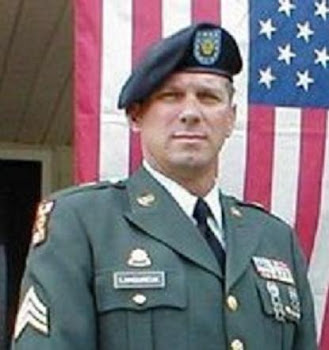Pat left for the war on my birthday, February 17, 2003.
Today marks the 7th anniversary of the invasion of Iraq. Seven years later - and have we really "won" anything? Perhaps some people say we have "won" - I tend to disagree because something has been LOST......isn't it ironic? Operation Iraqi FREEDOM - ultimately cost my husband his FREEDOM.
The war in Iraq has forever changed our lives - and destroyed a phenomenal man. I ask that today each and everyone of you please pray with all your hearts and souls for Joseph Patrick Lamoureux.
Please pray for Pat and that this brave man who put his life on the line for Operation Iraqi FREEDOM will soon be FREE again.





